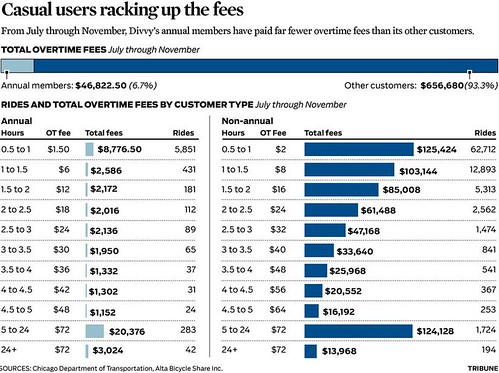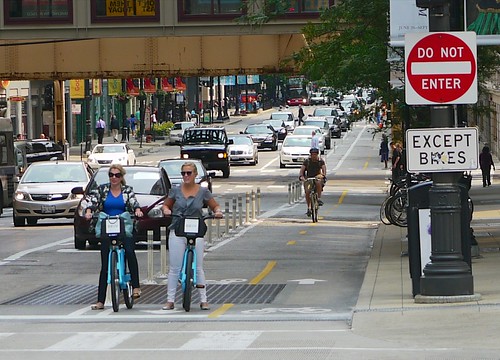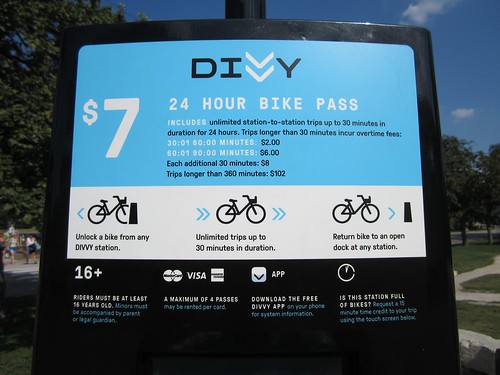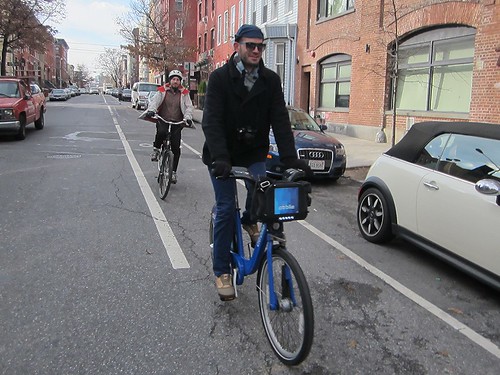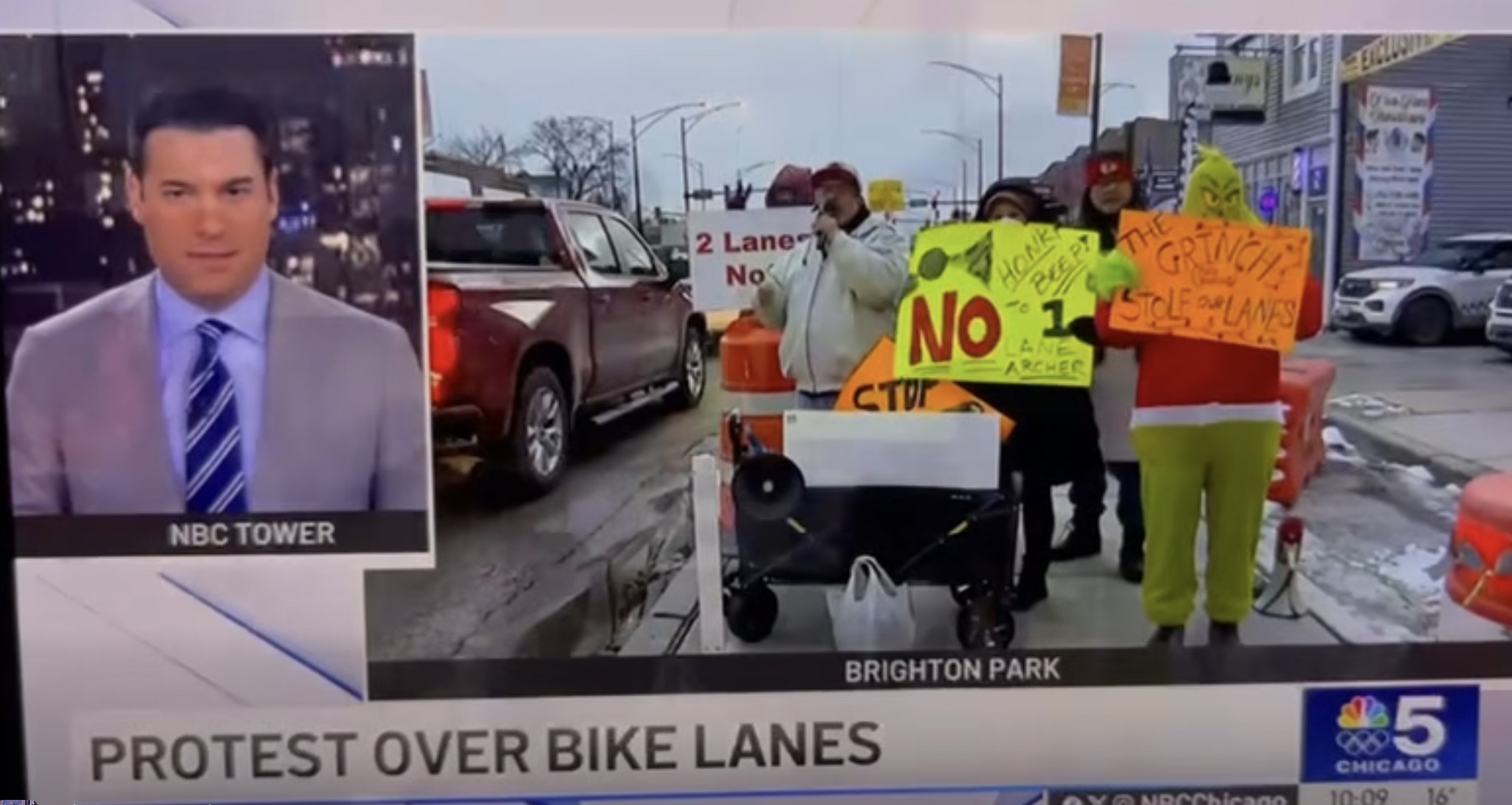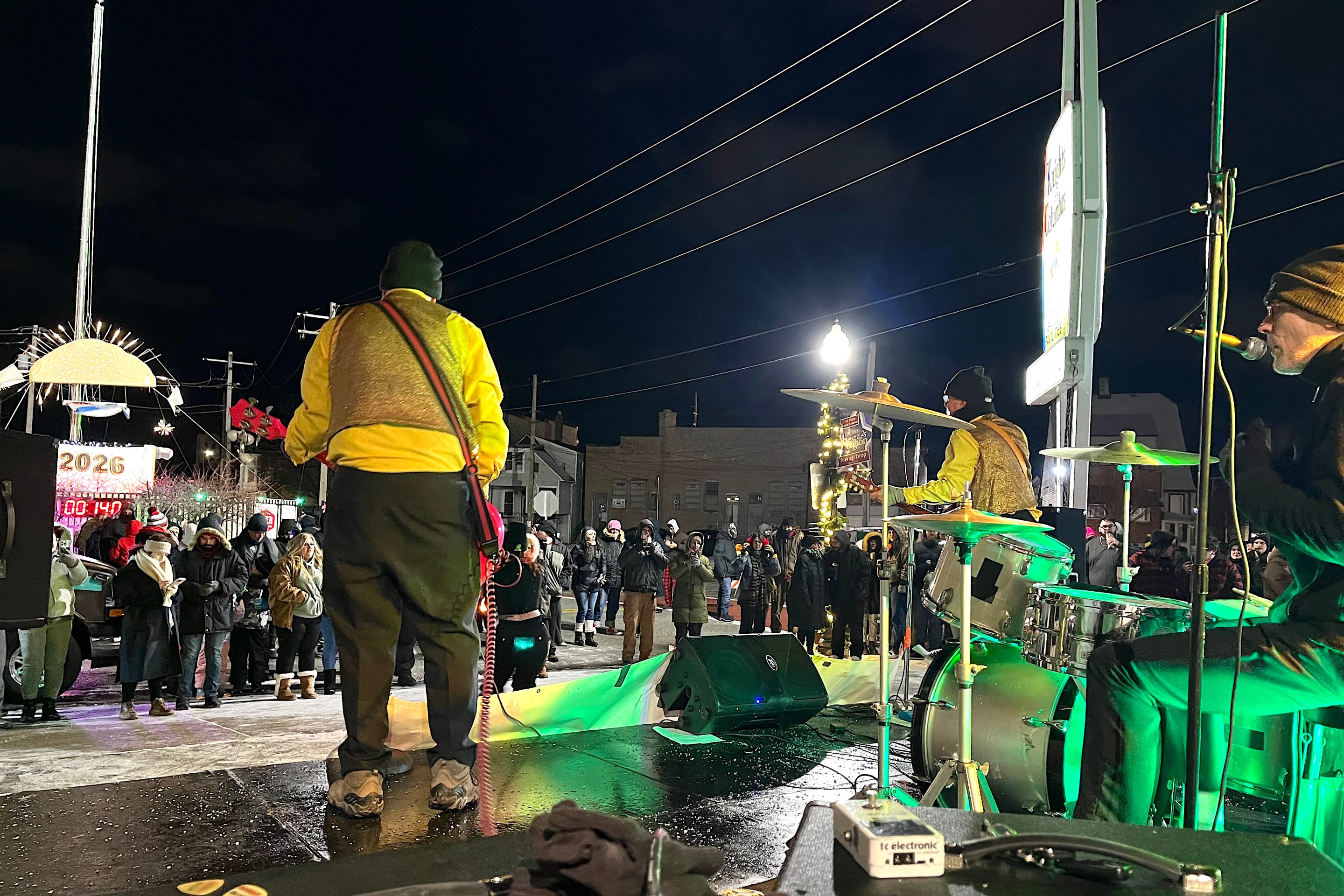In the early days of Divvy, the Tribune’s Jon Hilkevitch was one of the leading naysayers, but after the system proved to be a hit, he wrote an article acknowledging its success. On Monday he once again put bike-share under the microscope, but in a reasonably balanced manner, including some interesting statistics. Granted, the headline “Overtime fees pad Divvy's bottom line / Users rack up more than $700,000 in late charges” makes it sound like he’s exposing shady dealings by the city, and other language in the piece comes across as a bit slanted against the system, but it's an otherwise solid piece.
Hilkevitch reveals that Divvy took in about $2.5 million in user fees during its first five months, with roughly $703,500 coming from late fees. The vast majority of these fines were paid by daily pass users, many of whom are tourists, rather than annual membership holders.
“It's not clear whether the Divvy public-private partnership, supported by $25 million in federal funding and $6.25 million in local matches, is turning a profit,” Hilkevitch writes. The $31.25 million in public funding Hilkevitch refers to is the startup cost for the 475 planned stations – there are currently only 300 stations on the street. The city of Chicago owns the equipment and Alta Bicycle Share, which is paid via user fees, runs the system. Per the contract, profits or losses will be shared between the city and Alta. While it’s hoped that Divvy’s revenue will more than pay for operating costs, there’s no expectation that the initial $31.25 million investment will be recouped.
Hilkevitch writes that about $1.6 million of the $2.5 million in user fee revenue came from 24-hour passes and their associated late fines. The roughly 131,000 daily pass users, who tend to be visitors, accrued more than $656,600 in overtimes charges. However, the roughly 11,500 annual members spent only $47,000 in late fees, docking their bikes within the time limit 97 percent of the time.
There are a couple of possibilities for this discrepancy. It may be the case that tourists are more likely to accidentally rack up late fines because they don’t understand the fee structure. Unfamiliarity with the docking station locations may also make it more challenging for them to find a place to park within the 30-minute time limit.
On the other hand, some of these late charges may be intentional. While locals are more likely to use the bikes for short trips, such as from a transit station to their workplace, tourists are more likely to want to go for longer cruises, such as along the Lakefront Trail. Even factoring in late charges, Divvy rides under 90 minutes are cheaper than renting a comparable cycle from Bike and Roll Chicago, the city’s largest rental company (and a Streetsblog sponsor).
“Newbies to bike sharing are understandably confused — and perhaps misled — by the time-limit policies that could result in overtime charges,” Hilkevitch writes. He notes that an ad for Divvy at O’Hare tempts visitors to "See all the sights for just $7 per day" but doesn’t mention the 30-minute time limit. I wouldn’t call that misleading. Bike-share works great for making short trips from one sightseeing destination to another, as I recently did using New York City’s Citi Bike system, which is also operated by Alta and has a similar fee structure.
It's worth noting that while Hilkevitch discusses the $2.5 million in user fee revenue, he fails to mention that income from the sale of placard ads on the docking stations, as well as a potential corporate sponsorship, greatly increase the chances that the system will turn a profit. Chicago Department of Transportation spokesman Pete Scales told me that ad sales figures should be available in a month or so.
